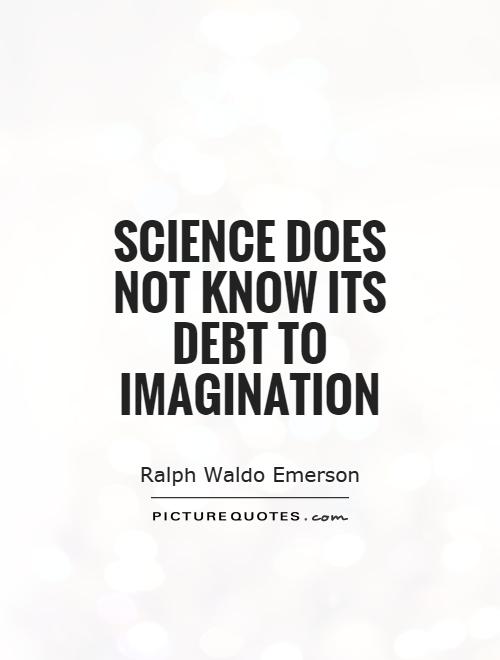Science does not know its debt to imagination

Science does not know its debt to imagination
Ralph Waldo Emerson, a prominent American essayist, lecturer, and poet, was a firm believer in the power of imagination. He often emphasized the importance of creativity and intuition in the pursuit of knowledge and understanding. In his essay "Nature," Emerson explores the interconnectedness of the natural world and the human mind, highlighting the role of imagination in shaping our perception of reality.Emerson argues that science owes a great debt to imagination, as it is through the creative faculties of the mind that new ideas and discoveries are born. He believed that imagination is the driving force behind scientific inquiry, pushing researchers to think beyond the confines of established knowledge and explore new possibilities. Without imagination, Emerson suggests, science would be limited to mere observation and repetition, lacking the spark of creativity that fuels innovation and progress.
Emerson's views on the relationship between science and imagination are particularly relevant in today's world, where technological advancements and scientific breakthroughs are constantly reshaping our understanding of the universe. In fields such as physics, biology, and astronomy, researchers are constantly pushing the boundaries of knowledge, challenging conventional wisdom and exploring new frontiers of discovery. This spirit of exploration and curiosity, Emerson would argue, is fueled by the imaginative capacity of the human mind.
Moreover, Emerson believed that imagination is not just a tool for scientific inquiry, but a fundamental aspect of human consciousness. He saw imagination as a bridge between the individual and the universe, allowing us to connect with the world around us in a deeper and more meaningful way. By tapping into our creative potential, Emerson believed, we can unlock new insights and perspectives that can enrich our lives and expand our understanding of the world.












 Friendship Quotes
Friendship Quotes Love Quotes
Love Quotes Life Quotes
Life Quotes Funny Quotes
Funny Quotes Motivational Quotes
Motivational Quotes Inspirational Quotes
Inspirational Quotes